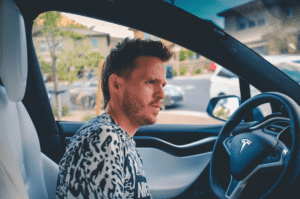 Self-driving cars, also known as autonomous vehicles, have been a topic of discussion and development for quite some time. While many are excited about the idea of cars that can drive themselves, others are concerned about the safety of these vehicles. So, are self-driving cars safe? Let’s explore this question in more detail.
Self-driving cars, also known as autonomous vehicles, have been a topic of discussion and development for quite some time. While many are excited about the idea of cars that can drive themselves, others are concerned about the safety of these vehicles. So, are self-driving cars safe? Let’s explore this question in more detail.
First, it’s important to understand how self-driving cars work. These vehicles are equipped with a range of sensors, cameras, and other technologies that allow them to “see” the world around them and make decisions based on that information. They use complex algorithms and artificial intelligence to process this data and navigate the roads, avoiding obstacles and following traffic laws.
On paper, this all sounds very impressive and futuristic, but what about in the real world? There have been several high-profile incidents involving self-driving cars over the years, some of which have resulted in injuries or fatalities. For example, in 2018, a pedestrian was killed by an Uber self-driving car in Arizona. In 2016, a Tesla Model S crashed into a truck while in autopilot mode, resulting in the death of the car’s driver.
These incidents have understandably raised concerns about the safety of self-driving cars. However, it’s important to remember that accidents can happen with any kind of vehicle, whether it’s driven by a human or a machine. In fact, studies have shown that most car accidents are caused by human error, such as speeding, distracted driving, or driving under the influence of drugs or alcohol.
One of the main arguments in favor of self-driving cars is that they have the potential to greatly reduce the number of accidents on the roads. According to the National Highway Traffic Safety Administration, 94% of serious car crashes in the United States are caused by human error. Self-driving cars, on the other hand, are not subject to the same types of distractions or impairments that human drivers are, and they are able to react much more quickly to potential hazards on the road.
Another factor to consider is the level of testing and regulation that goes into the development of self-driving cars. Companies that are working on these technologies must adhere to strict safety standards and undergo extensive testing before their vehicles can be approved for use on public roads. Additionally, regulatory bodies such as the National Highway Traffic Safety Administration and the Federal Aviation Administration are closely monitoring the development of self-driving cars to ensure that they are safe for both passengers and other road users.
In conclusion, while there have been some high-profile incidents involving self-driving cars, it’s important to remember that accidents can happen with any kind of vehicle. The potential benefits of self-driving cars, including a reduction in accidents caused by human error, are significant, and the technology is being developed and regulated with safety in mind. As with any new technology, there will be challenges and setbacks along the way, but the future of self-driving cars looks promising from a safety perspective. If you’re in a Las Vegas car accident in a self-driving vehicle, contact us with any questions.
Last updated Sunday, March 10th, 2024 | Written by Anthony B. Golden

 Self-driving cars, also known as autonomous vehicles, have been a topic of discussion and development for quite some time. While many are excited about the idea of cars that can drive themselves, others are concerned about the safety of these vehicles. So, are self-driving cars safe? Let’s explore this question in more detail.
Self-driving cars, also known as autonomous vehicles, have been a topic of discussion and development for quite some time. While many are excited about the idea of cars that can drive themselves, others are concerned about the safety of these vehicles. So, are self-driving cars safe? Let’s explore this question in more detail.




